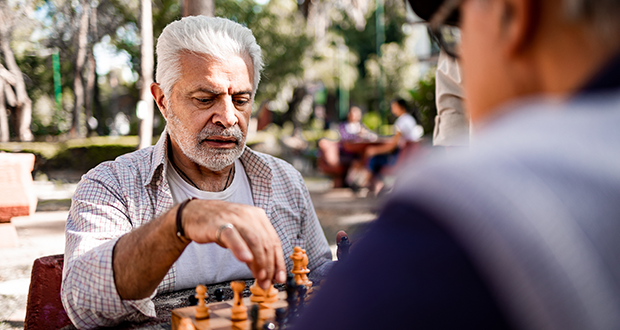Computers, crossword puzzles, and chess – these three "brain activities" have a shared factor in being much stronger in slowing dementia down.
A Monash University study has found activities like crosswords, chess, using a computer, and keeping a journal may help in reducing the risk of dementia than activities like knitting, painting, and socialising.
Professor Joanne Ryan from Monash University’s School of Public Health and Preventive Medicine said stimulating "brain activities" were better in decreasing the risk than passive activities.
“Our findings indicate that more frequent engagement in activities that really stimulate and engage the mind over passive mental activities decreased the risk by 9-11 per cent,” Professor Ryan said.
“We also found that creative artistic activities like painting, reading, and listening to music did decrease the risk – around seven per cent – but to a lesser extent.”
In 2023, the Australian Institute of Health and Welfare estimated that more than 400,000 Australians lived with dementia.
Without a breakthrough, experts predict this number will rocket to 900,000 in the next 25 years.
Around 70 per cent of aged care residents lived with moderate to severe cognitive impairments, including dementia.
Professor Ryan said the rise of the aging population means more people will develop dementia. Research such as this one is therefore vital to improve cognitive function.
“We had a unique opportunity to close a gap by investigating a broad range of lifestyle enrichment activities that older adults often undertake and assess which of those were most strongly aligned with avoiding dementia,” Professor Ryan told Aged Care Insite.
“Our findings suggest that keeping the mind active and stimulated as we get older is important.”
Despite social connections exhibiting a lower result in reducing the risk of dementia, Professor Ryan said its’ significance should not be underestimated.
“Social isolation and loneliness are risk factors for dementia, and there should be continued emphasis on being socially connected,” she said.
“Our findings don’t rule out the importance of social engagement rather, it is the quality of the interactions that matter.”
Last month, aged care provider Silverchain teamed up with UNSW’s Centre for Health Brain Ageing and The University of Queensland for a new research trial.
Lead researcher Dr Suraj Sumtani told Aged Care Insite, that the results pointed to social relationships being a very powerful and protective tool against dementia.
“We know that loneliness is very common in our society, and there are a lot of older adults who are isolated and lonely," Dr Sumtani said.
“The program will allow them to connect with others and help them stay socially and mentally active.”
Do you have an idea for a story?Email [email protected]
 Aged Care Insite Australia's number one aged care news source
Aged Care Insite Australia's number one aged care news source

